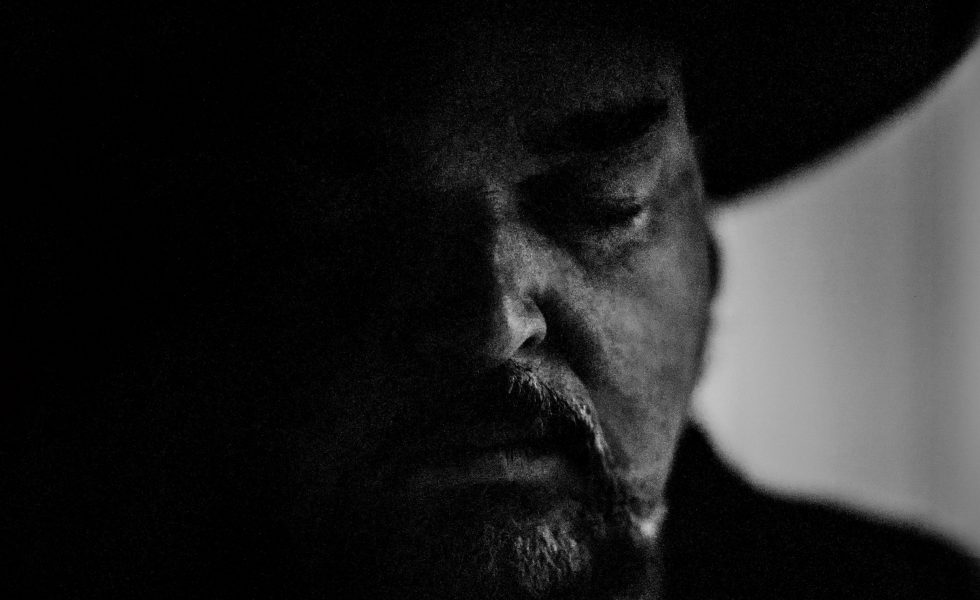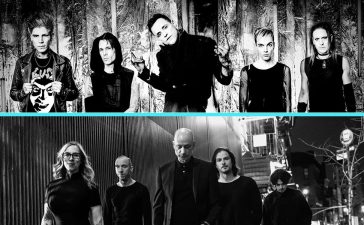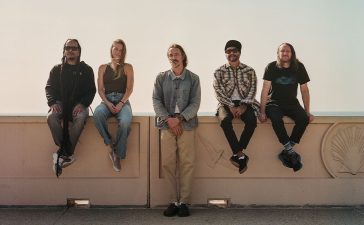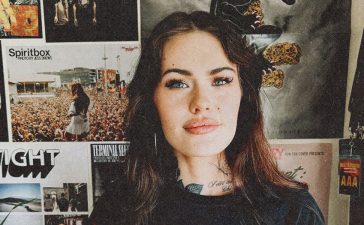Chilean-American guitarist, songwriter and sound engineer Alain Johannes has established himself as the go-to man for artists such as Josh Homme, Polly Jean Harvey, Chris Cornell, Jimmy Eat World, Mark Lanegan and more. His skill, as he tells it, is to be transparent in the musical process – a channel through which the music that exists perpetually around us is made manifest at the right time, in the right way. He is not claiming to be godlike. Far from it. At 58, he is still overcome with wonderment at the diversity and dexterity of music, art, expression and nature.
On his most recent album, Hum, he is seeking to alleviate the weight of grief that his wife Natasha’s death landed on his spirit. It is a wild thing, atmospheric and mystical, lush with guitars, strings, percussion and layers of voices that echo his fascination with Sufi music, Native American instruments, traditional Indian and Chinese instruments and even punk rock, post-rock and metal. Whether it’s the purity of being a channel for the music to translate itself into an album or the result of five decades of dedicated musical study and practice, Hum is a masterpiece.
“I had this record brewing inside me since last year,” he says. “In the past few years I have been in a world of dealing with Natasha and Chris [Cornell] passing. I didn’t feel ready for some time, but then I did some touring last year before I fell significantly ill. When I recovered in January this year, I was ready to go. I wait to feel the energy of the time is right to make a record. I wait until I feel it spontaneously.”
Though Johannes doesn’t think he had COVID-19, he was sick with the symptoms of coronavirus – manifesting in bronchitis and pneumonia – from November to January. “During that time I really meditated on the past and what I wanted for the future. I also heard some of the guitar and melodies for the record. So, I had the Portuguese guitar and melodies and the acoustic for some of the songs. I improvise melodies and vocals on Instagram, so those songs in early stages are there on my account.”
Johannes purchased a sarangi from Amazon (sounds like a cello, often used in Bollywood movies) and laid down the acoustic instruments, including Portuguese guitar and harmonium, while he waited for his lungs to heal and his voice to be strong enough.
“The 10 songs on Hum took 12 days and I was writing and recording them in sequence, in the way I wanted the album to unfold,” he explains. “I literally wrote the melody and the lyrics for the first song, ‘Mermaids’ Scream’, the day of recording. I recorded, mixed it and went to bed. The next day was ‘Hum’, then I let every single day result in what it did. Next thing you know, the album was done. I am used to making records like that. I think my ability to get a sense of when the moment comes, I just enter into a semi-trance and I trust it will come. I don’t overthink it, I get out of the way.”
Johannes is currently living with his sister in Los Angeles. It was important to him to leave the home Natasha and he had rented, also in LA, where they’d recorded with Chris Cornell and Queens of The Stone Age, Mark Lanegan, Live, Jimmy Eat World and Eleven.
“When I went on tour with PJ Harvey, she told me it was charged with an energy that I realised was weighing me down,” he says. “I moved out of there and into my sister’s home in Hollywood, where I lived since the 1970s. So, it was really nice to be here with my sister, her husband and my nephew. I’ve converted the garage into my studio. It’s an in-between space to work out what I’ll do with my life.”
Johannes says the reason he has such a connection with musicians is the mutual respect. “Josh [Homme], Chris [Cornell] and Polly Jean Harvey all know what they want but it’s a constant process of discovery. I have so much experience in writing and recording music of all different types. My thing is to be a good ally and relied upon to provide what is needed. I love the feeling of collaboration and family. Chris and Josh and Polly and Mark [Lanegan] are all attuned to that.”
Johannes’ musical CV is eclectic, crossing blues and jazz, electric and acoustic, instrumental and vocal. “I have a fascination with music from all time periods and all cultures,” he says. “I look for a quality that speaks to me. Usually it bottles down to transcendence. I almost look at music as something that’s always existing, you just need to plug into it. I have listened to flamenco since I was a kid, Ravi Shankar, a lot of singers, blues players, Sufi music, a Bulgarian choir – discovering all that music has just always fed me. Bach, Stravinsky, Chopin and then punk, noise music. It all feeds me.”
Johannes’ maternal side is Russian, Polish and Austrian Jewish. Born in the late 1950s, he was raised by his grandmother in Zurich from the age of one. “I didn’t meet my mother until the 1960s, in Mexico. I didn’t meet my real father in Chile until 2007. My father was a self-taught musician, a man who was really focused, though he still had a lot of humility to him. I saw a lot of myself in him. My mother and aunts were very Bohemian, very European, big personalities and that was never me. Josh and I had been working on Crooked Vultures and he said I needed to connect with my paternal side so that was the first time I met my father. “
Johannes’ instruments are his family, his tools and his physical connection to what feels to him to be a spiritual and sacred creation: music and sound.
“I have been collecting instruments for a long time. My uncle gave me a classical guitar and then when I was 10, I got an electric guitar. I started falling in love with instruments and sound, so I bought horns in my teens, then I sought out a sitar. I’ve got literally hundreds of instruments, 600 I think; flutes, a guzheng and a pipa from China, a sarod (from India) and a harmonium. I used the harmonium on Howling Bells on Hum. There’s wood pipe alongside a fretless guitar to mimic the theramin or string quartet sound. I try to go to Native American instrument shops to find percussion and cool instruments. I’ve got a few Siberian drums, these big animal-skin drums with massive character and volume. All these are on Hum. Acoustic instruments are at the heart of the thing, but then I add to it with all these instruments I’ve got set up in the room.”
As soon as it’s possible, Johannes wants to make his way to Europe for the tour that was meant to be happening now. It’s been shifted to April next year. “I don’t mind the idea of live streams,” he muses. “I’m going to try it, even though it’s not the same energy that’s so magical when you experience music with other people in the room. I want to do a bunch of recording next year too, not another solo album. I’ve done some soundtracks, 14 hours each per game, for Ghost Recon (‘Wildlands’ and ‘Breakpoint’). We just improvised and jammed for those. I’ve always loved cinematic music and I would love to find a Director for whom I could develop a relationship like Morricone established in his time.”
Johannes’ album is the last solo album he’s intending for the time being. It’s glorious, whether it was his own making or divine timing and energies. Hum is out now out on Ipecac.







